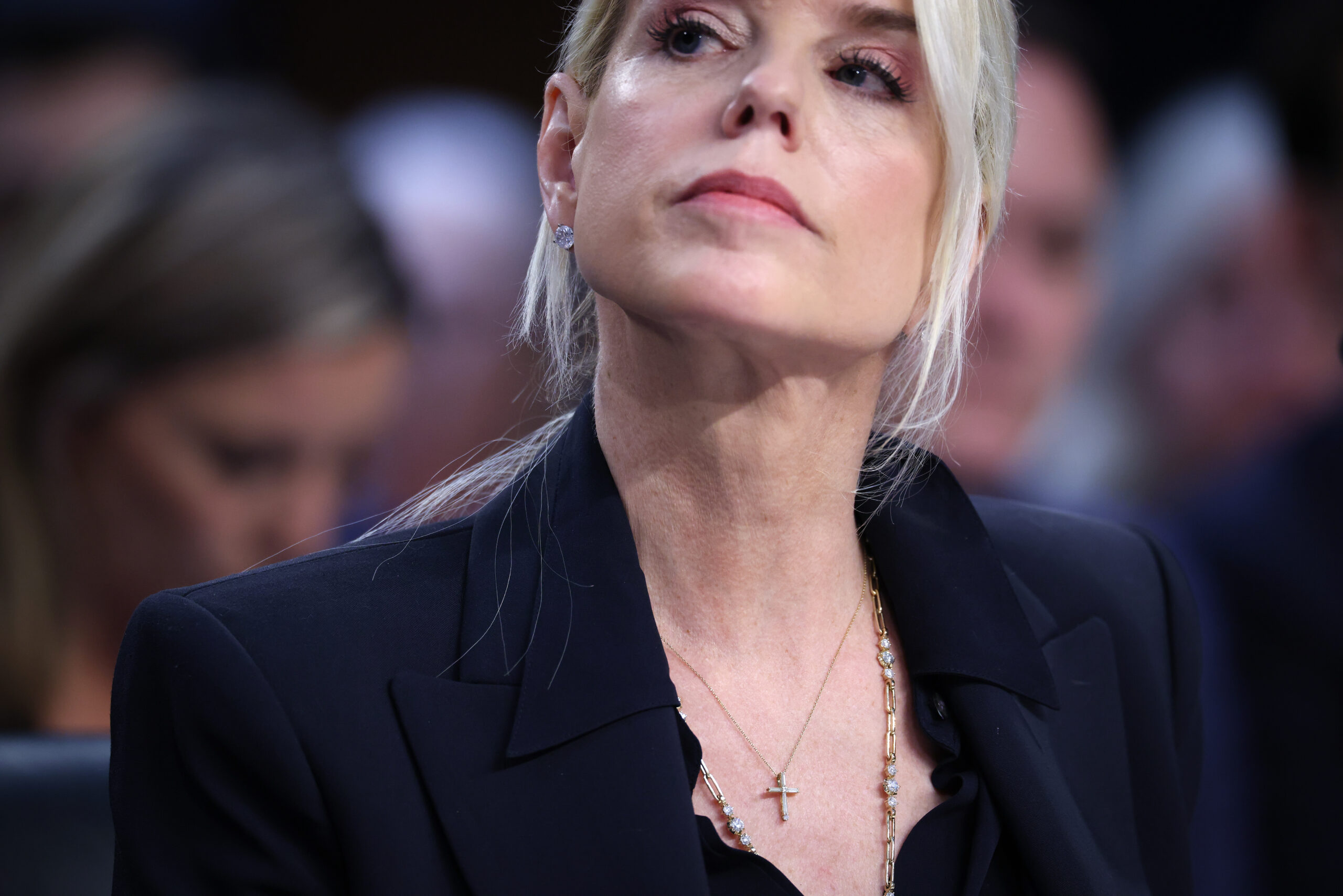Attorney General Pam Bondi is reversing herself from her previous assertion that the investigation into Jeffrey Epstein was going nowhere and that she would release no information related to Epstein or his network. Now, after Congress passed a bill to force a disclosure of the Epstein files, she says that there is “new information” warranting investigation an assertion which could give her cover to heavily redact the files. Congress swiftly passed the Epstein files on Tuesday, with all but one member of the House voting for the legislation. Hours later, the Senate passed the bill unanimously. According to the House clerk’s office, the legislation has been formally transferred to the Senate clerk, though the Senate clerk’s office did not immediately respond to a request for comment about whether or not the legislation has been transmitted to the White House for President Trump’s signature. A White House official told the New York Sun on Tuesday that the legislation would be signed once it arrives at 1600 Pennsylvania Avenue. On Wednesday, Ms. Bondi, deputy attorney general Todd Blanche, and FBI director Kash Patel held a joint press conference to discuss a figure on the FBI’s most wanted list. Unsurprisingly, Ms. Bondi was questioned quite a bit about Epstein. “There’s information new information, additional information,” Ms. Bondi said when asked why she was launching a probe into prominent Democrats’ relationship with Epstein. Mr. Trump specifically called on the Justice Department to look into President Clinton, former treasury secretary Larry Summers, and billionaire Democratic Party donor Reid Hoffman. “We will continue to follow the law, to investigate any leads. If there are any victims, we encourage all victims to come forward, and we will continue to provide maximum transparency under the law,” she declared. Ms. Bondi and other Department of Justice officials declined to say what this “new information” is. She referred questions about the revived Epstein investigation to the U. S. attorney’s office at the southern district of New York. Some have raised concerns that the investigation into Democrats could serve as a kind of pretext for Ms. Bondi to start heavily redacting documents before they are sent to Congress. The bill to release the Epstein files requires the information be transmitted to Congress within 30 days, though it stipulates that there can be any redactions for anything related to ongoing investigations or prosecutions. The author of the Epstein Files Transparency Act, Congressman Ro Khanna, told the New York Sun on Monday night before the bill was passed that he did not share others’ concerns. “If we [pass] this bill, there will be enough pressure for them to release these files,” he said when asked about redactions. The Republican co-author, Congressman Thomas Massie, pointed out on X that Ms. Bondi does not have unlimited authority to start hiding information based on whether or not investigations are occurring. “For anyone hoping to use ‘ongoing investigations’ as a reason to withhold Epstein files, please read the language of the bill,” Mr. Massie wrote on X Tuesday, pointing observers to the sections that states Ms. Bondi may only withhold information if that withholding is “narrowly tailored and temporary.” “Thank you for your attention to this matter,” Mr. Massie added jokingly. The Republican leadership in Congress, meanwhile, is not letting their own investigation of Epstein die, despite the passage of the Epstein files disclosure bill. That legislation applies only to records in the Justice Department’s possession. The Oversight Committee has expanded their own probe to include not just DOJ records, but documents from Epstein’s estate and from the financial institutions where Epstein had done business. On Tuesday, after the passage of the Epstein Files Transparency Act, the chairman of the Oversight Committee, Congressman James Comer, announced he had subpoenaed Epstein’s bank records from both J. P. Morgan Chase and Deutsche Bank. Mr. Comer also asked the attorney general of the U. S. Virgin Islands where Epstein lived for years to turn over any information he had about Epstein’s role in trafficking minors for sex.
https://www.nysun.com/article/bondi-reverses-course-saying-there-is-new-information-about-epstein-after-asserting-just-months-ago-that-the-investigation-was-dead
 WASHINGTON, DC - OCTOBER 07: U.S. Attorney General Pam Bondi testifies before the Senate Judiciary Committee in the Hart Senate Office Building on Capitol Hill on October 07, 2025 in Washington, DC. Bondi is expected to face criticism from Democrats on the Justice Department’s targeting of President Trump’s political opponents, including the recent indictment of former FBI Director James Comey. (Photo by Win McNamee/Getty Images)
WASHINGTON, DC - OCTOBER 07: U.S. Attorney General Pam Bondi testifies before the Senate Judiciary Committee in the Hart Senate Office Building on Capitol Hill on October 07, 2025 in Washington, DC. Bondi is expected to face criticism from Democrats on the Justice Department’s targeting of President Trump’s political opponents, including the recent indictment of former FBI Director James Comey. (Photo by Win McNamee/Getty Images) 
